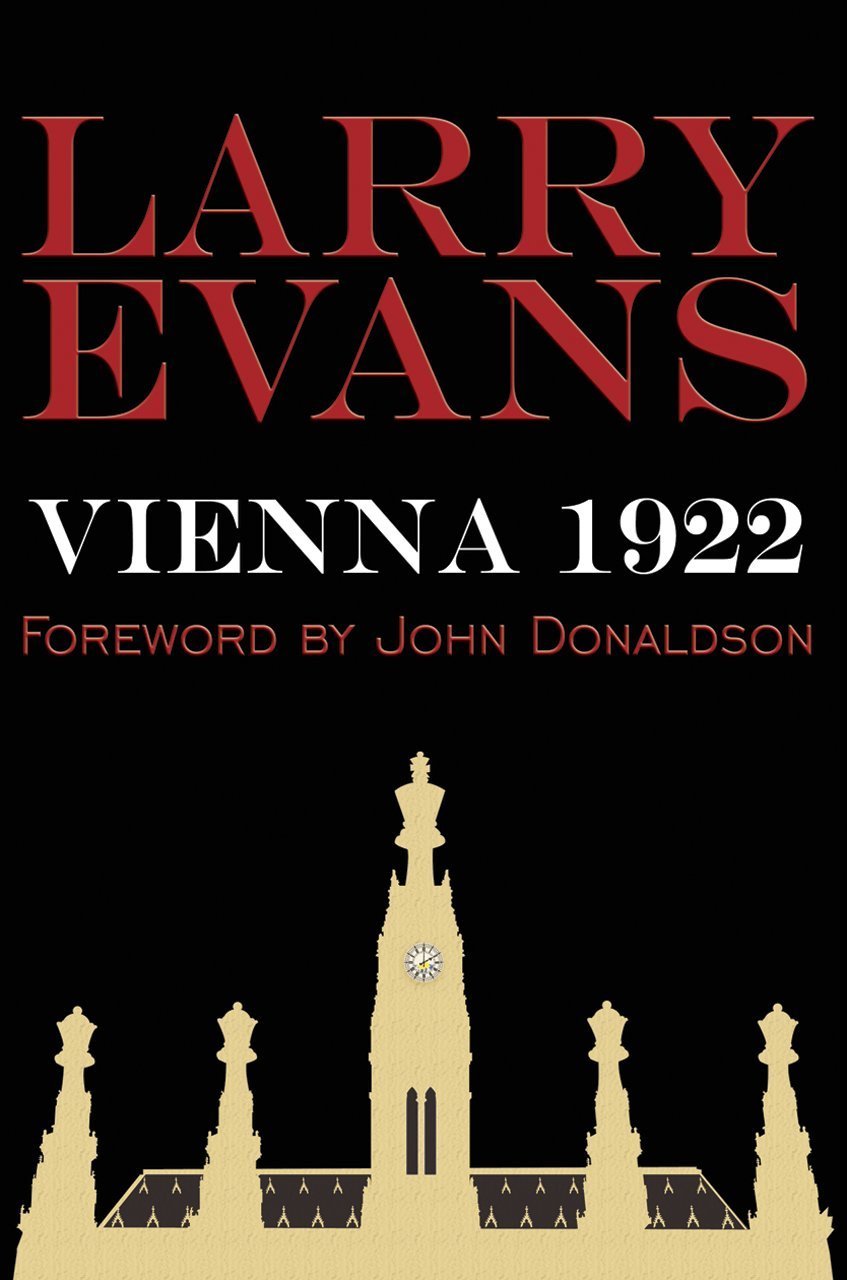
Vienna 1922 - Evans
- 30+ FREE Gifts with Purchase

Chess House Guarantee
- Easy parts. When buying a chess set online, we've got you covered. With us, you have easy access to parts for years so your set is always playable.
- Safe, timely arrival. Every order is thoughtfully packed. Plus, delivery time is clear from checkout until it reaches your door.
- Peace of mind. Easy access to our friendly experts and 90 day, no-hassle returns.
That's why 22,480 people rate Chess House 4.8 out of 5 stars.
Mark (Verified Buyer)
Always fast, efficient, packed well, and good updates and communication on order even if just email.
About The Vienna 1922 - Evans
The First - and Sadly the Last - Book by Larry Evans
Vienna 1922 is remembered as one of the first great tournaments after World War I. All the stars of the day (Alekhine, Bogoljubow, Grunfeld, Maroczy, Reti, Spielmann, Tarrasch and Tartakover) played except Capablanca and Lasker, but it was Akiba Rubinstein who was to turn in an outstanding success scoring an undefeated 11½ from 14 to finish a point and half ahead of second place Tartakover and two and a half (!) points ahead of Alekhine.
Hindsight allows us to know that Vienna 1922 was an aberration, that the future would belong to Alexander Alekhine, but for fans of the great Rubinstein this was one last chance to dream that he might yet battle for the world championship title. Certainly his victories over Alekhine (the last of his career), Bogoljubow (which won the first brilliancy prize) and Spielmann compare with the best games he ever played. Every tournament winner needs a little luck and Rubinstein used his to save a difficult and theoretically important ending against his compatriot Tartakover in what proved to be the crucial game in the battle for first place.
Vienna 1922 will also be remembered as the greatest result in the career of the Austrian master Heinrich Wolf who finished an outstanding third with 10 points, beating both Alekhine and Bogoljubow. The journeyman master Wolf, who was to perish at the hands of the Nazis in 1943, played in many other international events in his career but with nothing resembling the success he enjoyed at Vienna 1922.
This was the first book ever written by American grandmaster Larry Evans. The then 16-year-old master self-published it in 1948 with English descriptive notation, no diagrams, with a plastic ring binding, mimeographed. He was persuaded to revise and update it, making use of modern figurine algebraic notation, many diagrams not to mention annotations that have made him one of the most popular chess writers of our era.
Just when this book was being prepared to go to press, however, the tragic news flashed around the world: Larry Evans had died.
As noted by John Donaldson in his Foreword, this book marked the beginning of what turned out to be one of the longest and most productive literary careers in American chess history. It also tragically turned out to be Larry's swan song. It is unlikely that the chess world will ever see another chessplayer who accomplished so much both with the pieces and with the pen.
Specifications
- 144 Pages
- Paperback
- Publisher: Russell Enterprises, Inc.
- Published: 2011 (Reprint Edition)





